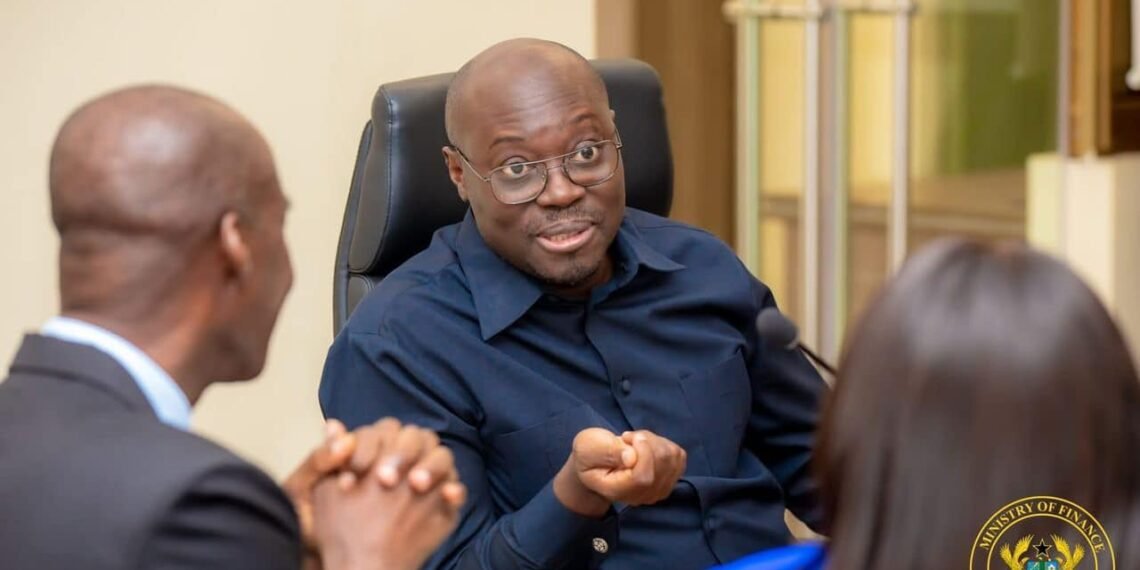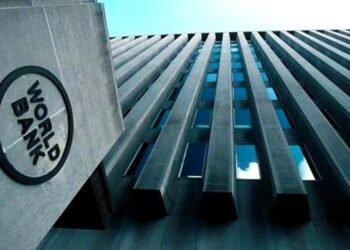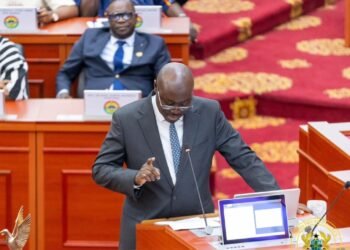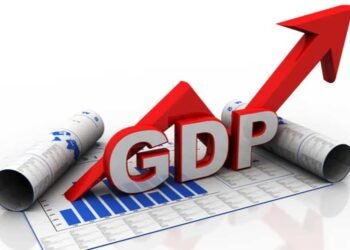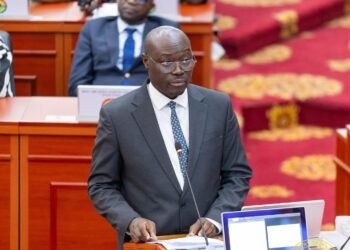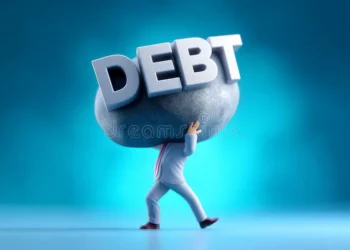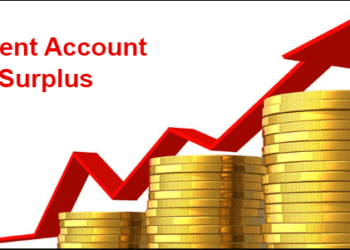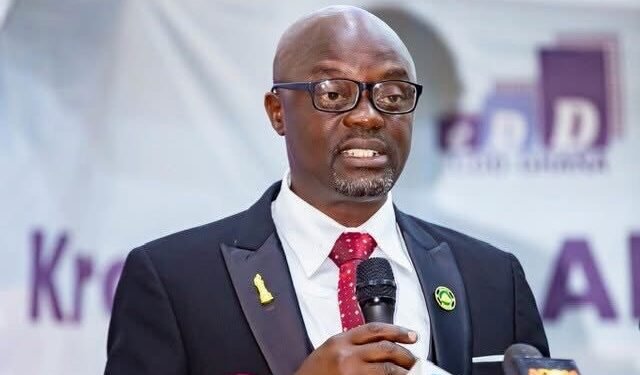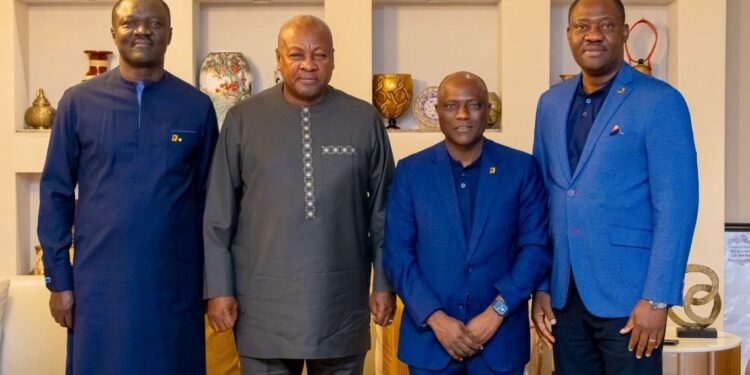Ghana’s Finance Minister, Dr. Cassiel Ato Forson, has lauded the exceptional performance of the Ghanaian cedi, attributing its emergence as the world’s best-performing currency in 2025 to fiscal discipline and sweeping economic reforms under President Mahama’s administration.
Speaking at the inauguration of the Board of Directors of the newly established Ghana Goldbod, Dr. Forson hailed the cedi’s strength as a product of disciplined fiscal management, tight monetary policy, and a favourable global context, marking a significant turning point in the country’s economic narrative.
“As of May 13, 2025, the Ghana cedi has solidified its position as the standout performer among global currencies, achieving a remarkable 16.7% appreciation against the US dollar year-to-date”.
Dr Cassiel Ato Forson, Ghana’s Finance Minister
According to him, this contrasts sharply with the 13.4% depreciation recorded during the same period in 2024. Dr. Forson proudly celebrated ‘cedi’s global recognition as the top-performing currency in April 2025.
This favourable outcome, he credited to the government’s “robust policy framework” anchored in macroeconomic discipline and strategic coordination between the Ministry of Finance and the Bank of Ghana.
According to the Minister, the central bank’s stringent monetary stance—marked by aggressive liquidity sterilisation—has worked in tandem with the Finance Ministry’s prudent fiscal strategy.
These have included efforts to rein in public expenditure, tighten revenue collection systems, and uphold transparency in financial governance.
Dr. Forson noted that this policy alignment has helped to stabilise macroeconomic fundamentals while shoring up investor confidence.
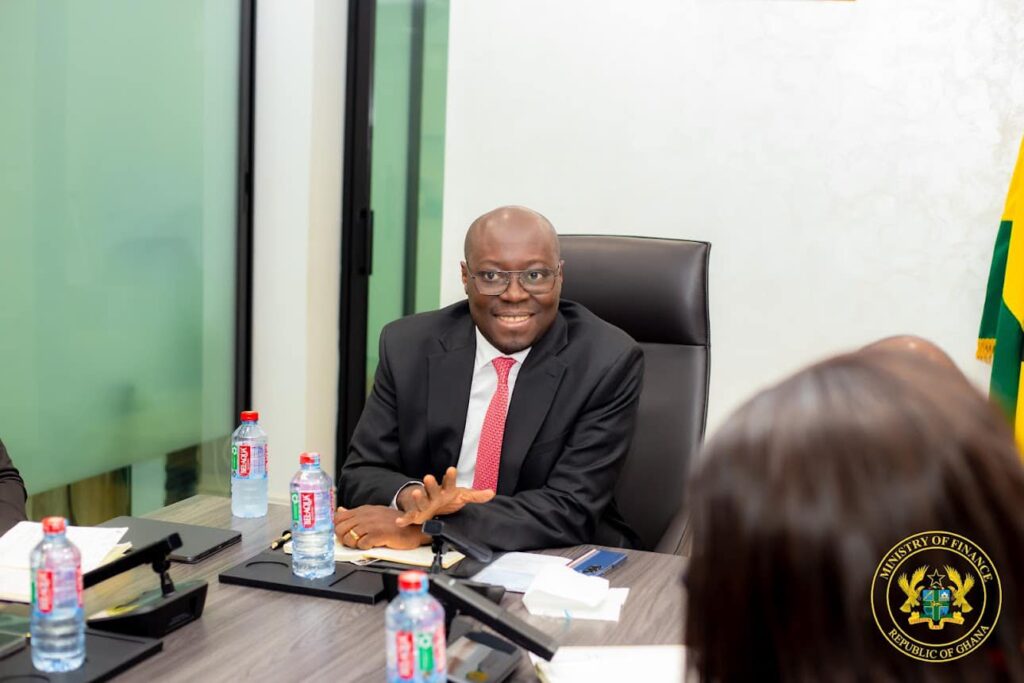
Strong Foreign Exchange
Crucially, the Finance Minister pointed to strong foreign exchange inflows from Ghana’s traditional export earners—gold, cocoa, and remittances—as essential to the cedi’s rally.
Added to this was a softening of the US dollar due to global economic uncertainties, which further tilted the scales in Ghana’s favour.
However, Dr. Forson was quick to emphasise that the cedi’s gains were not a trade-off against national financial safety, revealing that the Bank of Ghana’s foreign exchange reserves reached a record high in April 2025, surpassing targets set under the IMF-supported programme ahead of schedule.
“This underscores the sustainability of the cedi’s performance,” he declared, noting that such progress had been achieved without compromising fiscal buffers or emergency response mechanisms.
Goldbod’s Role in Economic Stability
Dr. Forson was particularly optimistic about the role of the Ghana Goldbod in reinforcing this upward economic trajectory.
He asserted that the establishment and operationalisation of the Goldbod would usher in a paradigm shift in Ghana’s approach to currency stabilisation and foreign exchange accumulation.
By refining Ghana’s gold trade governance architecture and enhancing transparency in the bullion market, the Board is expected to be a game changer in diversifying forex inflows and reducing the nation’s reliance on external borrowing.
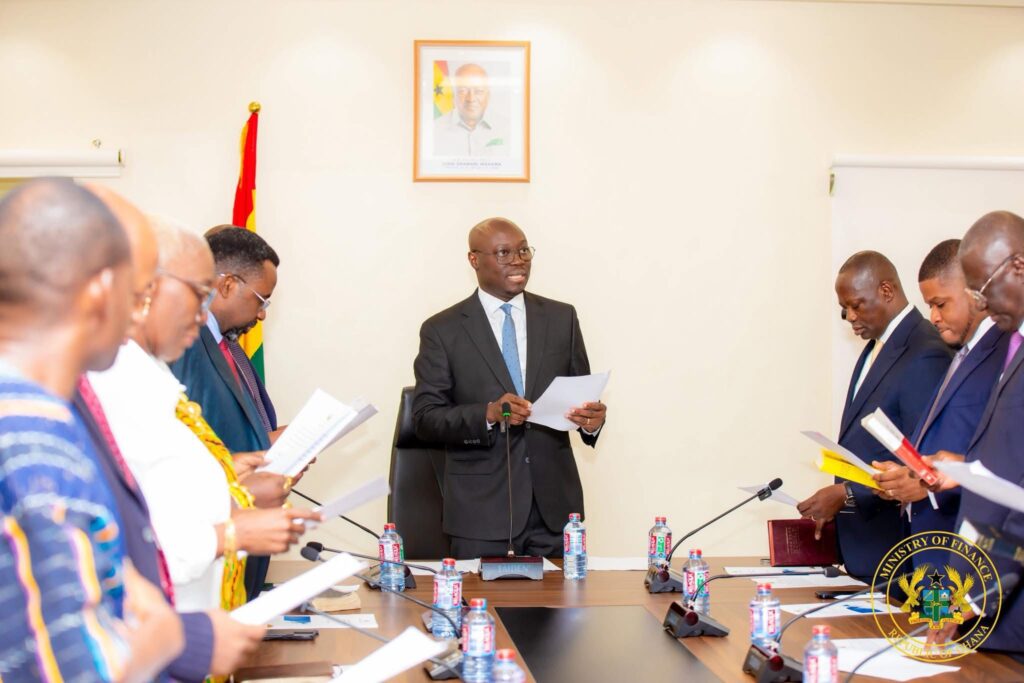
He suggested that traditional economic models might soon become obsolete if they fail to account for the evolving dynamics introduced by institutions like the Goldbod.
“This paradigm shift will challenge traditional models reliant on old patterns, potentially leading to inaccurate projections and missing the true potential of the cedi.”
Dr Cassiel Ato Forson, Ghana’s Finance Minister
Assuring both domestic and international stakeholders of the resilience and future strength of the cedi, the Minister urged the newly inaugurated Board to deliver on its mandate with integrity, foresight, and a deep sense of national duty.
“I urge the newly constituted Board to work hard to support and sustain this trajectory,” he said, expressing confidence that the Board’s work would help actualise President Mahama’s broader vision of resetting Ghana’s economy for shared prosperity.
The 13-member Ghana Gold Board is a multi-stakeholder body made up of key actors from government, industry, academia, and traditional leadership.
The Board is chaired by Mr. Kojo Fynn, with Mr. Samuel Gyamfi, the Acting CEO of the Goldbod, as a member.
Other members include Hon. Emmanuel Armah Kofi Buah, Minister for Lands and Natural Resources; Hon. Thomas Nyarko Ampem, Deputy Finance Minister; Dr. Johnson Asiama, Governor of the Bank of Ghana; and Mr. Nelson Ahedor, a representative of the Minerals Commission.

The list also includes Mr. Christopher Opoku Nyarko from the Ghana Chamber of Mines; Mr. Godwin Nichelson Armah representing the Ghana Small Scale Miners Association; and Mr. Kwaku Effah Asuahene of the Chamber of Bullion Traders.
Also on the Board are Hon. Shaibu Mahama, MP for Daboya/Mankarigu; Dr. Abdul Baasit Aziz-Bamba, a legal academic; Ms. Marrietta Brew Appiah-Oppong, Legal Counsel to the President; and Nana Ama Amissah III, Paramount Queen Mother of the Mankessim Traditional Area.
In closing, the Finance Minister called for collective effort and national unity in supporting President Mahama’s economic reset agenda, urging all sectors to play their part in securing prosperity for every Ghanaian.
READ ALSO: FDA Warns against Cannabis-Infused Alcoholic Drinks in Ghana

